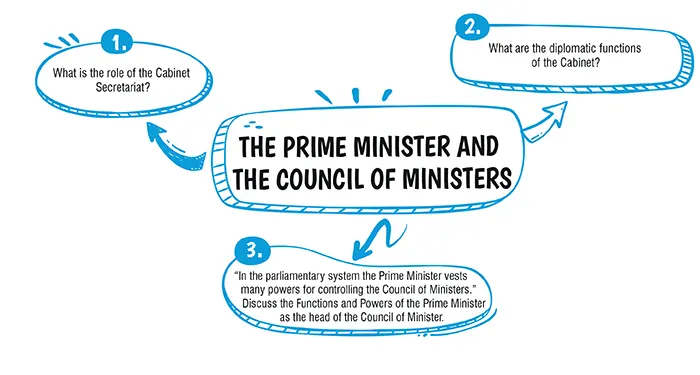Home / Board / ICSE / important Questions / Class 10 / History & Civics / The Prime Minister and the Council of Ministers
Table of Contents

Ans.(b) The Prime Minister
Explanation:
The Prime Minister manages the policies and operations of all the ministries of the government in order to ensure that all departments adhere to the Cabinet’s policies and decisions.
Ans.(b) The Prime Minister
Explanation:
Despite the fact that there is a Minister of Foreign Affairs, the Prime Minister has an important role in these matters. In international conferences, he represents India and attends the meetings.
Explanation:
The Cabinet has a Secretariat with a Secretary-General as its head. It plays an important coordination role in the decision making at the highest level. It operates under the supervision and direction of the Prime Minister. It prepares the agenda of the Cabinet meetings, prepares minutes of the meetings, and arranges follow-up action for the implementation of the decisions taken in the meeting.
Explanation:
The diplomatic functions of the Cabinet are :
1. The Cabinet finally approves the appointment of Ambassadors.
2. It determines India’s foreign policy with other countries.
3. It formulates the provisions of the Treaties and Agreements with other countries.
Explanation:
In India, the PM is the head of the Government. He has an edge over Council of minister in executive government because of the following reasons:
Download Mind Map of this chapter
Download NowWant to Practice Mock Tests of this chapter
Practice NowDownload Important Questions of this chapter
Download NowCBSE Important Questions Class 10
ICSE Important Questions Class 10
CBSE Important Questions Class 10
ICSE Important Questions Class 10